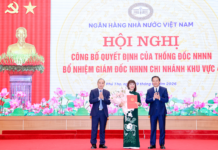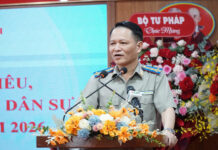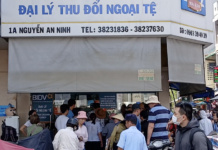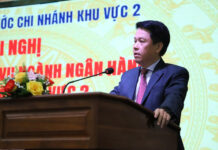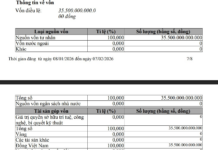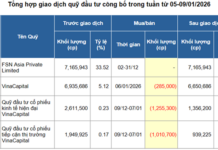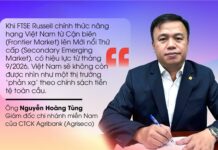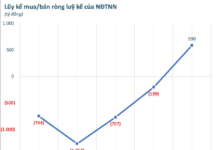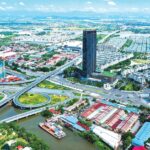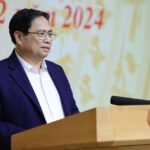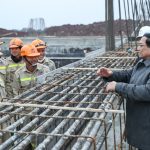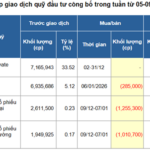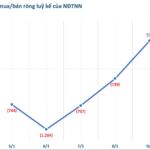The meeting focused on discussing the socio-economic situation in July and the first seven months of the year, as well as capital allocation and disbursement, government steering, and other important matters. Reports and opinions presented at the meeting unanimously assessed that the socio-economic situation in July and the first seven months achieved 13 outstanding results.
Firstly, the economy continued its positive growth trajectory in all three sectors. The agriculture sector maintained stable growth.
The industrial sector showed strong signs of recovery, with a 0.7% increase in July compared to June and an 11.2% rise year-on-year. Overall, the seven-month growth stood at 8.5%. Sixty out of 63 provinces and cities recorded industrial production index increases in July compared to the same period last year, while three localities experienced declines. Notably, the Purchasing Managers’ Index (PMI) for July 2024 reached 54.7 points, the highest since November 2018, indicating robust production and new orders.
The service sector continued its steady growth; total retail sales of goods and services revenue in July increased by 9.4%, and the seven-month growth was 8.7%.
Secondly, the macroeconomy remained stable, with inflation well-controlled and key balances ensured. The consumer price index (CPI) averaged a 4.12% increase in the first seven months, a 0.04% rise compared to June (while core inflation rose by 2.73%, up 0.02% from June) against the backdrop of basic wage increases. Energy security and food security were guaranteed (rice exports reached 5.18 million tons, with a turnover of nearly USD 3.3 billion, up 5.8% and 25.1% respectively compared to the same period last year); the labor market recovered well, and labor supply and demand were basically balanced.
Thirdly, exports continued to grow significantly, with a large trade surplus contributing to a positive balance of payments. Exports in July increased by 6.7% compared to June and 19.1% year-on-year; the seven-month growth was 15.7% (the domestic sector grew by 21.1%, higher than the FDI sector’s 13.8% increase); imports rose by 18.5%; and the trade surplus was USD 14.08 billion.
Fourthly, state budget revenue increased sharply, and state budget finances continued to improve. The total state budget for the first seven months was estimated at 69.8% of the yearly estimate, up 14.6% over the same period last year (while tax, fee, and charge exemptions of VND 87,200 billion were implemented). Public debt, government debt, foreign debt, and budget deficits were controlled below the prescribed limits.
Fifthly, tourism recovered strongly, surpassing pre-pandemic levels. International visitors in July reached 1.15 million; for the first seven months, the number was nearly 10 million, up 51% compared to the same period in 2023 and 1.9% higher than in 2019 before the COVID-19 pandemic.
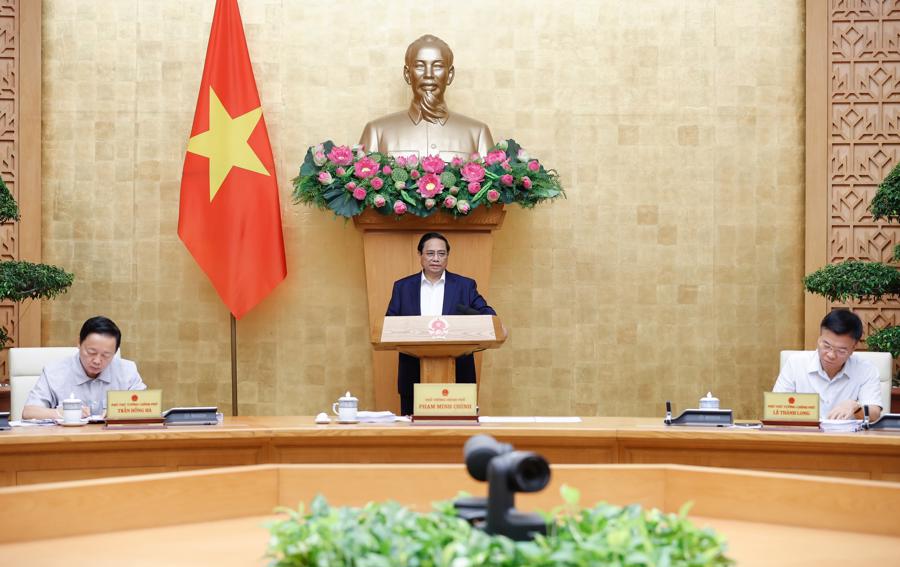
Sixthly, development investment continued to yield positive results, creating a driving force for growth. Disbursement of public investment capital in the first seven months reached 34.68% of the plan. FDI attraction reached USD 18 billion, up 10.9%; FDI realization was USD 12.55 billion, up 8.4%, the highest in the last five years.
Seventhly, business development maintained its positive trend. In July, 14,700 new businesses were registered, up 7.3% compared to the same period last year; in the first seven months, there were 139,500 new and re-entering businesses, up 5.9% over the same period last year (higher than the number of businesses exiting the market).
Eighthly, culture and social sectors were given due attention, and social security was guaranteed. Activities to commemorate the 77th War Invalids and Martyrs’ Day were well-organized. Various regimes and policies, such as retirement pensions, social insurance benefits, preferential treatment for people with meritorious services, and social allowances, were implemented correctly, fully, and promptly according to the new salary scale from July 1, 2024. The total budget for allowances and preferential treatment for people with meritorious services to the revolution increased by more than VND 5,300 billion. In July, 95.8% of households reported stable or higher incomes than in the same period last year.
Ninthly, the implementation of the salary reform policy from July 2024 received the consensus of the entire political system and the people across the country.
Tenthly, efforts were made to build and essentially complete the issuance of decrees guiding the amended Land Law, Housing Law, Real Estate Business Law, and Law on Credit Institutions.
Eleventhly, administrative reforms, especially streamlining and simplifying administrative procedures, digital transformation, Proposal 06, and anti-corruption efforts, were promoted, contributing to strengthening people’s trust.
Twelfth, political and social stability was maintained; national defense and security were strengthened, and social order and safety were ensured. The election of Comrade To Lam as General Secretary by the Central Committee with an absolute majority of 100% of the votes affirmed the great unity and consensus within the Party. External affairs and international integration were promoted, enhancing the country’s prestige and position. Many international organizations and experts continued to highly appreciate Vietnam’s economic results and prospects.
Thirteenth, timely response and recovery efforts were made regarding natural disasters and floods, especially providing support to families who lost their loved ones or had their houses washed away or damaged.
However, alongside these achievements, the meeting also acknowledged the difficulties and challenges facing the socio-economic situation.
Inflationary pressures remain high, mainly due to volatile crude oil and food prices. The global financial, monetary, and real estate markets are still fraught with risks. Global growth, trade, and investment forecasts show a recovery trend but remain vulnerable to potential risks.
Production and business activities in some sectors face difficulties. Access to credit remains challenging. While the real estate market has initially stabilized, problems and obstacles are still slow to be resolved. The deployment of the VND 140,000 billion credit package for social housing is very slow, and there is still VND 26,500 billion in public investment capital yet to be allocated.
The lives of a part of the population, especially in remote, border, and island areas, remain challenging. Natural disaster damage in the first seven months amounted to VND 2,123 billion, more than 2.3 times higher than in the same period last year. Crime, especially cybercrime, remains complex, and several severe labor accidents and fires have occurred.
At the meeting, after analyzing the reasons for the achievements, limitations, and shortcomings, Prime Minister Pham Minh Chinh agreed with the lessons learned presented in the reports and the opinions expressed. He emphasized the following key lessons:
Firstly, it is necessary to strengthen unity and consensus within agencies, units, the entire political system, and the people. Secondly, it is crucial to grasp the practical situation and respond with timely, flexible, and effective policies. Thirdly, discipline, discipline, and the sense of responsibility of the leaders must be enhanced.
Fourthly, promote decentralization and delegation of power, along with increasing proactiveness, flexibility, creativity, self-reliance, and self-motivation. This should be coupled with resource allocation, improving the capacity of lower levels, and strengthening inspection, supervision, and control of power. Finally, pay more attention to information and communication work, especially policy communication, to help foster trust, create excitement, and promote the spirit of self-reliance and self-motivation, determination, and efforts to rise.
Government mandates construction projects during Tet holidays for critical projects
The government mandates that departments, agencies, and organizations encourage and motivate contractors to work relentlessly during the Lunar New Year period, with “3 shifts, 4 teams”, in order to strive for and surpass the schedule of key projects and works.






